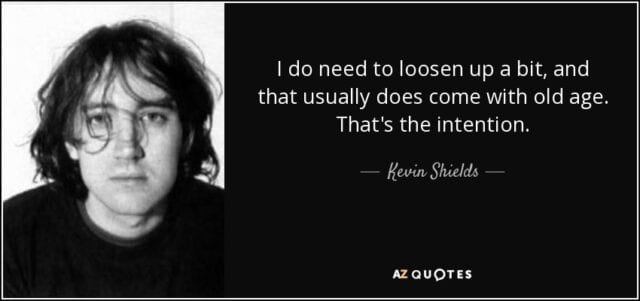
Even though the first season of Netflix’s The Umbrella Academy incorporated elements from both the first and second volumes of Gerard Way and Gabriel Bá’s Umbrella Academy comics, the live-action adaptation barely managed to scratch the surface of the source material’s twisted, science-fictional madness. Season two picks the story up right where it left off with a renewed focus on trying to keep things feeling strange and imaginatively fresh.
Like many of Netflix’s recent genre shows, where the connective tissue between multiple shorter seasons has been tight enough to keep the larger plot feeling cohesive, Umbrella Academy’s second season opens with the assumption that you’re caught up on what’s what with the Hargreeves siblings. Moments after stopping their sister Vanya (Ellen Page) from killing them, the other Hargreeves realize in horror that they’ve accidentally set off the apocalypse by destroying the moon and causing a storm of meteors to head toward Earth.
In Dark Horse’s comics, the family was depicted as being more technically powerful and skilled with their super abilities, and so the Hargreeveses were able to band together to protect the planet from imminent danger as the Dallas arc began. In Netflix’s telling of the story, though, things play out somewhat differently as the group finds themselves flung across the timestream. Save for being set in 1960s Dallas and the Hargreeveses learning that they’re somehow connected to John F. Kennedy’s assassination, The Umbrella Academy’s broad strokes this season are generally different than the comics’ as each member of the family lands in at slightly different points in the past, albeit in the same physical vicinity.
For some of the family, like Five (Aidan Gallagher), journeying out of his natural-born space and time isn’t a particularly big deal, and he quickly sets about trying to track his siblings down before learning that the apocalypse they thought they’d averted actually “came back” with them. A sudden car accident leaves Vanya with a convenient case of amnesia about her entire life in the 21st century, and she settles into a new life as a nanny working on a farm with a woman named Sissy (Marin Ireland) and her husband Carl (Stephen Bogaert). The past is a path toward newfound freedom for Klaus (Robert Sheehan), who becomes a new-age faith healer/cult leader, able to fool everyone around him save for his brother Ben (Justin H. Min), a ghost who haunts his clairvoyant brother out of love as much as resentment.
G/O Media may get a commission
For Allison (Emmy Raver-Lampman), Diego (David Castaneda), and Luther (Tom Hopper), the past presents an opportunity for personal reinventions that are both painful and cathartic. Being a Black woman living in the South during the civil rights movement pushes Allison into a new role as an activist, agitating for equal rights on the ground while making a point of not using her powers. Being apart from his siblings gives Diego the chance to finally start operating as the solo superhero he’s always dreamed of being, and Luther sees his time as a sign that he can finally stop trying to be the heroic leader Reginald Hargreeves (Colm Feore) spent his life trying to mold him into.
Though the Hargreeveses were all well into their adulthoods in season one, season two feels like an examination of them all growing up in a way that they never could in modern times. Free from the Umbrella Academy and a lifetime of infamy as the world’s premier family of superheroes, each member of the family has a chance to explore what sorts of things they wanted out of life independent from one another. Each of the siblings becomes a more complex version of the person you saw last season, which is a good thing, but they all also have the tendency to feel a bit bogged down in the mundane morass of their new civilian lives, which aren’t always that interesting.
As the family begins to gravitate back toward one another and The Umbrella Academy’s main arcs begin to take shape, some of the first season’s narrative issues begin to resurface. While season two is certainly more aesthetically fanciful and opens with a surprising action sequence that actually feels as if it were plucked out of one of Way and Bá’s comics, it becomes something of a quiet show in many moments. This isn’t necessarily a bad thing, but it does often seem as if The Umbrella Academy’s second season is holding itself back from going full-on weirdo the way these characters are perfectly suited for.
Instead, this chapter of the Netflix series feels contemplative and rooted in reality at times when it could stand to skew a little bit more whimsical, if only to keep the season from drifting into self-serious territory. There are further complications to the Hargreeves’ lives as well this season but also more comedic moments when The Umbrella Academy begins to feel like the slightly more joyful show that it’s always had the potential to be. But ultimately, the second season errs more on the grounded side of things.
There are a handful of moments scattered throughout the season that might throw you for the slightest bit of a loop, but in the end, The Umbrella Academy’s second chapter ends up being perfectly good and just shy of great, which is saying something, because the show overall does feel like it has a stronger sense of what it’s trying to be. It’s just that right now, the tone the series is striking just isn’t out there enough to really stand out.
Updated: 7/27/2020, 4:05 p.m. EST: This post has been updated to remove a spoiler.
For more, make sure you’re following us on our Instagram @io9dotcom.
Source: gizmodo.com








